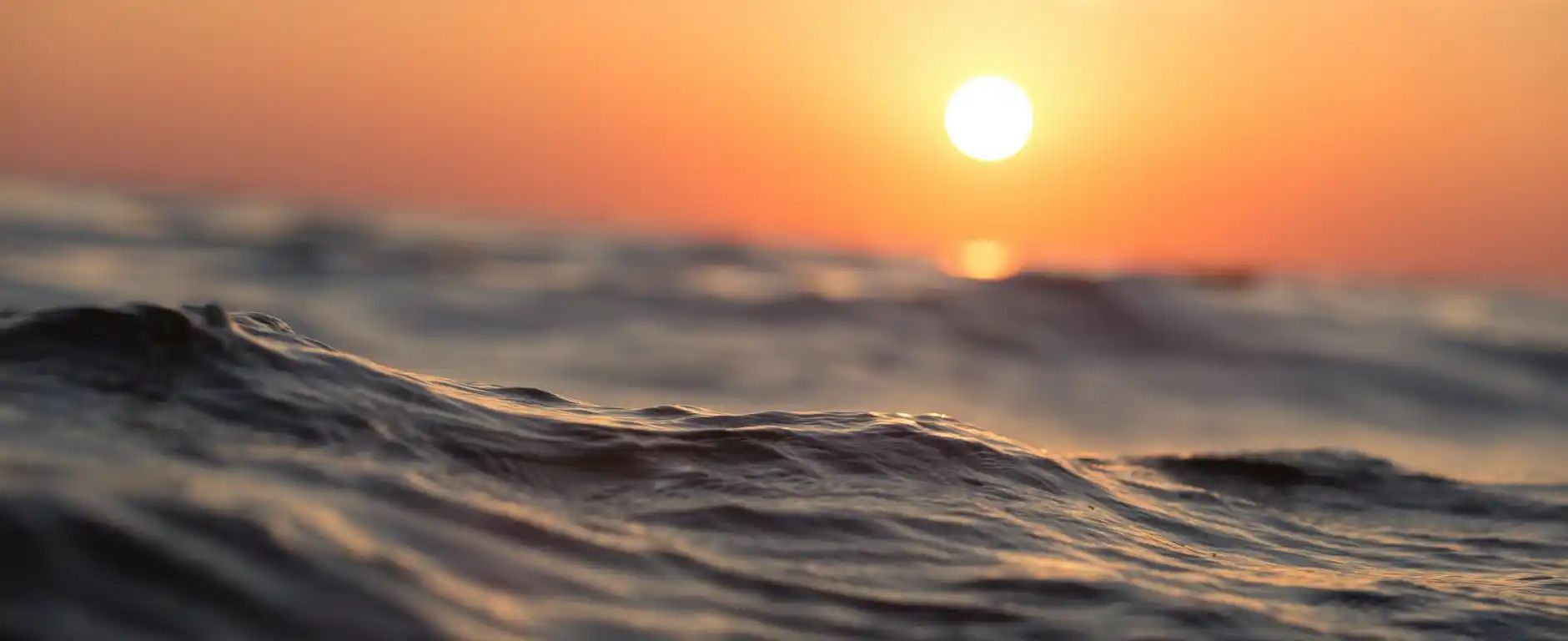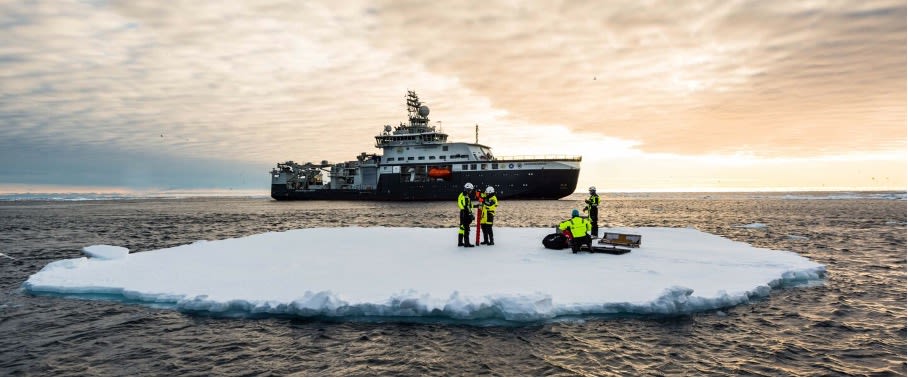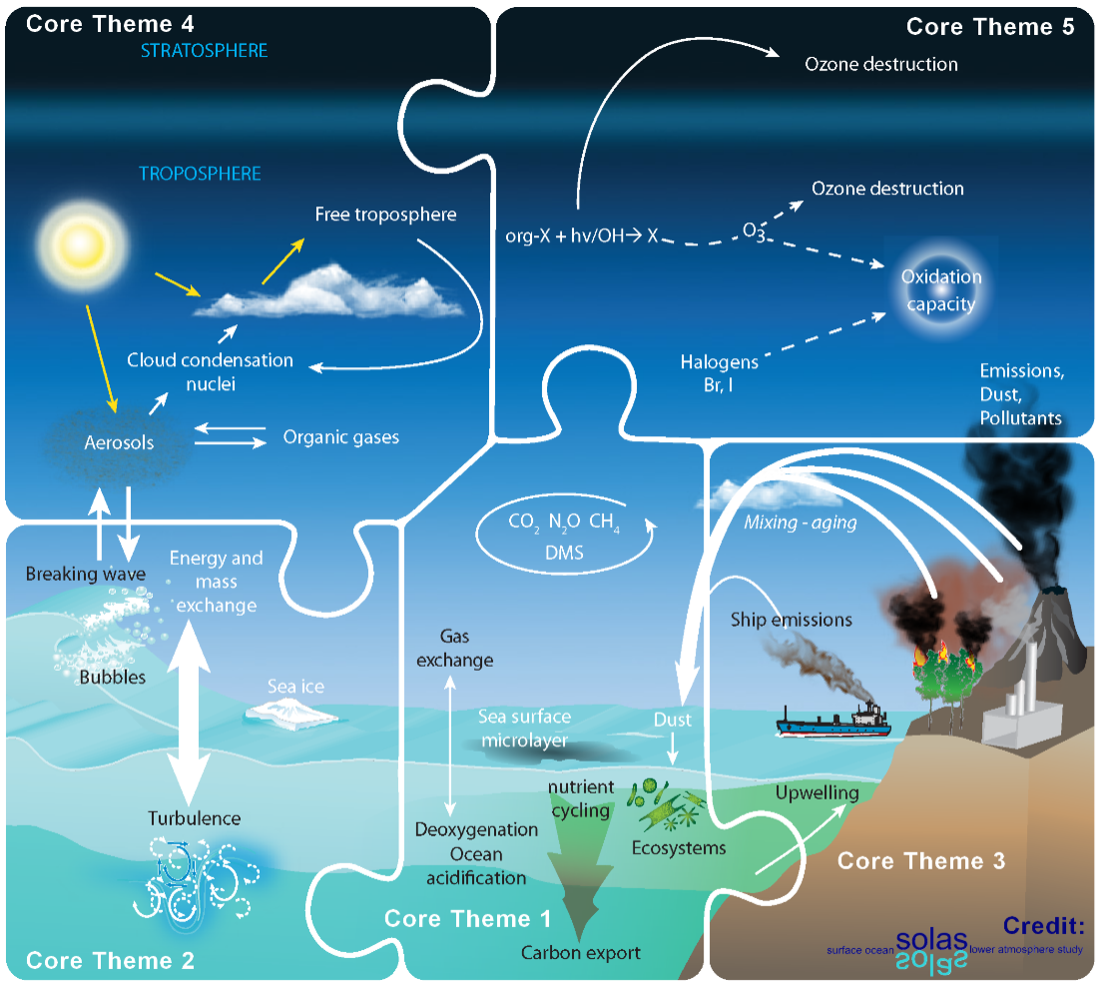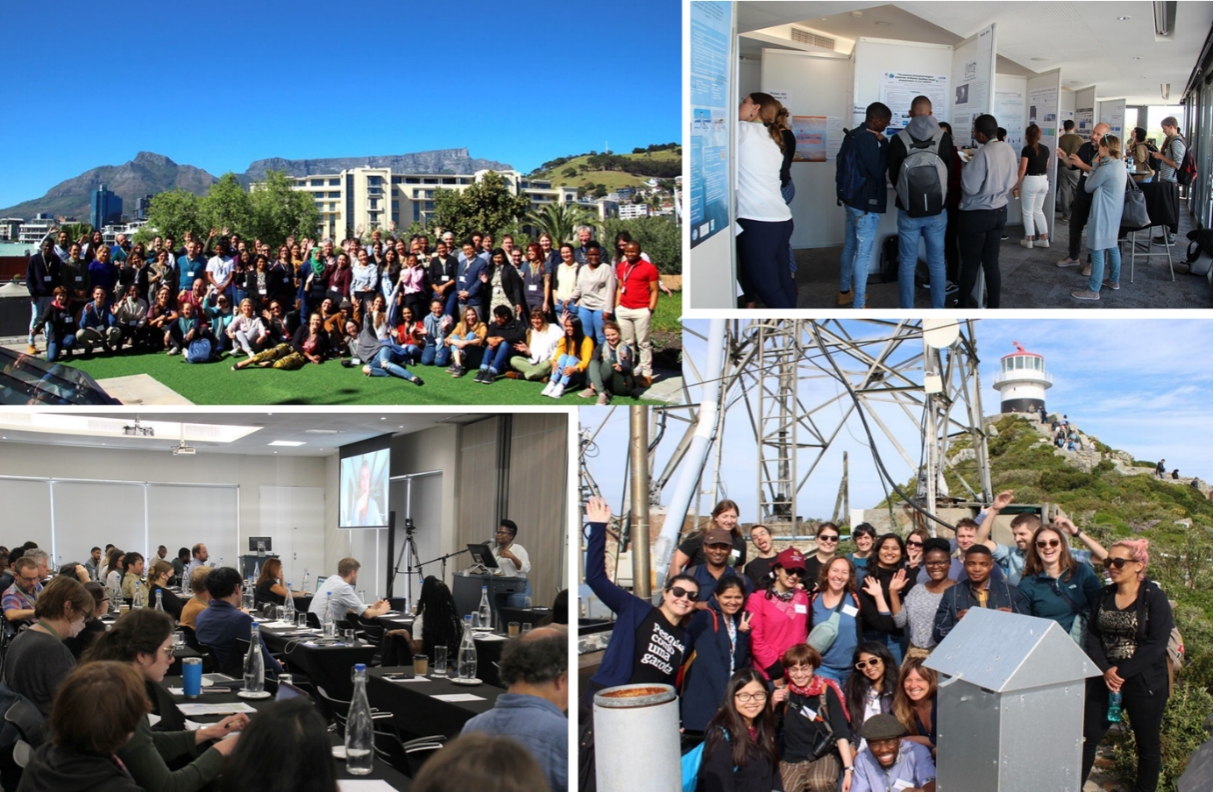
Bridging the Boundaries Between Ocean and Atmosphere


Since 2004, the Surface Ocean-Lower Atmosphere Study (SOLAS) is an international research initiative, co-sponsored by Future Earth, the International Commission on Atmospheric Chemistry and Global Pollution (iCACGP), the Scientific Committee on Oceanic Research (SCOR), and the World Climate Research Programme (WCRP), with the objective to achieve quantitative understanding of the key biogeochemical-physical interactions and feedbacks between the ocean and the atmosphere, and of how this coupled system affects and is affected by climate, environmental change, and society.
This mission is more important than ever, as there is an increasingly critical need for the integration of air-sea research to ensure the effective implementation of science in policy and decision-making on climate and environmental health. SOLAS plays a unique role by coalescing the ocean and atmosphere research communities to more effectively address these challenges in earth system science and provide new knowledge for societal solutions. The SOLAS International Project Offices, hosted at University of Galway, Ireland, and at Xiamen University, China, facilitate the integration and synthesis of international activities and research across multiple levels.

SOLAS-related sea-ice sampling during a research expedition to the Southern Ocean on board the research vessel Kronprins Haakon. Photo credit: Andreas Wolden
SOLAS-related sea-ice sampling during a research expedition to the Southern Ocean on board the research vessel Kronprins Haakon. Photo credit: Andreas Wolden
Over 1,200 core members and 32 national and regional networks are informed on SOLAS activities and science via various communication channels. Over the last 5 years, the IPO coordinated the development and synthesis of SOLAS research via 4 sponsored and 15 endorsed projects, a time-series station network, 20 sponsored/co-sponsored workshops, and 2 Open Science Conferences (2019, Japan; 2022, hybrid South Africa).
In 2022, the University of Galway and SOLAS teamed up to develop a 1-year structured research Master on Ocean, Atmosphere and Climate (MSC-OAC). The MSc will run in its 2nd round from September 2023 and combines taught and research elements of SOLAS. It is designed for students who want to develop careers in this vibrant, global, and multidisciplinary area and involves an up to 7-month research placement in a world-leading partner organisation, participation in international events, and working with renowned experts. Owing to relationships with major stakeholders, these placements offer students an opportunity to develop the necessary skills to continue with a PhD and work in the marine renewable energy sector, marine/atmosphere-related industry, or nature conservancy.
SOLAS fosters global capacity development, with 539 students having benefitted from 8 international SOLAS Summer Schools. The next School (June 2023) will welcome 70 students and 20 lecturers on Cape Verde, an island chain off the north-western coast of Africa. Since Early Career Scientists make up a significant portion of the community, SOLAS initiated a committee in 2023 to better represent the unique insights and opinions of this critical group and to provide future-generation scientists with networking and collaboration opportunities.

Important research advances include databases that support global policy-making, novel remote-sensing techniques, and new findings relating to marine aerosols, nutrient deposition to the ocean and marine influences on atmospheric chemistry. Integrated multidisciplinary studies established climate sensitivity and feedback in the polar oceans and upwelling regions. SOLAS has expanded its mission at the science-policy nexus with research on blue carbon, ship emissions, and climate intervention. By ensuring the effective implementation of science in policy and decision-making on climate and environmental health, SOLAS is engaged in e.g. COP, UNFCCC activities, and the UN Decade of Ocean Science for Sustainable Development.
In the future, SOLAS will focus on applications of autonomous and emerging technologies, as well as multi-disciplinary campaigns in remote and understudied regions to improve spatial and temporal coverage and process understanding. The engagement between natural and social scientists will be enhanced to ensure that transdisciplinary research informs international and regional decision-making, whilst coordinating international research on the evaluation of e.g. climate intervention. New research of societal and policy relevance will be developed relating to ocean health to meet the UN Sustainable Development Goals.

SOLAS Open Science Conference 2022, hybrid in Cape Town, South Africa. From top left to bottom right: Group photo of on-site participants; Poster session; plenary session; group photo of the Early Career Scientist Day participants at the South African Weather Service weather station at Cape Point. Photo credit: Jessica Gier & Raquel Flynn
SOLAS Open Science Conference 2022, hybrid in Cape Town, South Africa. From top left to bottom right: Group photo of on-site participants; Poster session; plenary session; group photo of the Early Career Scientist Day participants at the South African Weather Service weather station at Cape Point. Photo credit: Jessica Gier & Raquel Flynn
To find out more information about University of Galway’s Structured Masters (Ocean, Atmosphere and Climate) click here.
Article by: Dr. Jessica Gier – Executive director of Surface Ocean-Lower Atmosphere Study (SOLAS) & manager of the MSc on Ocean, Atmosphere & Climate

